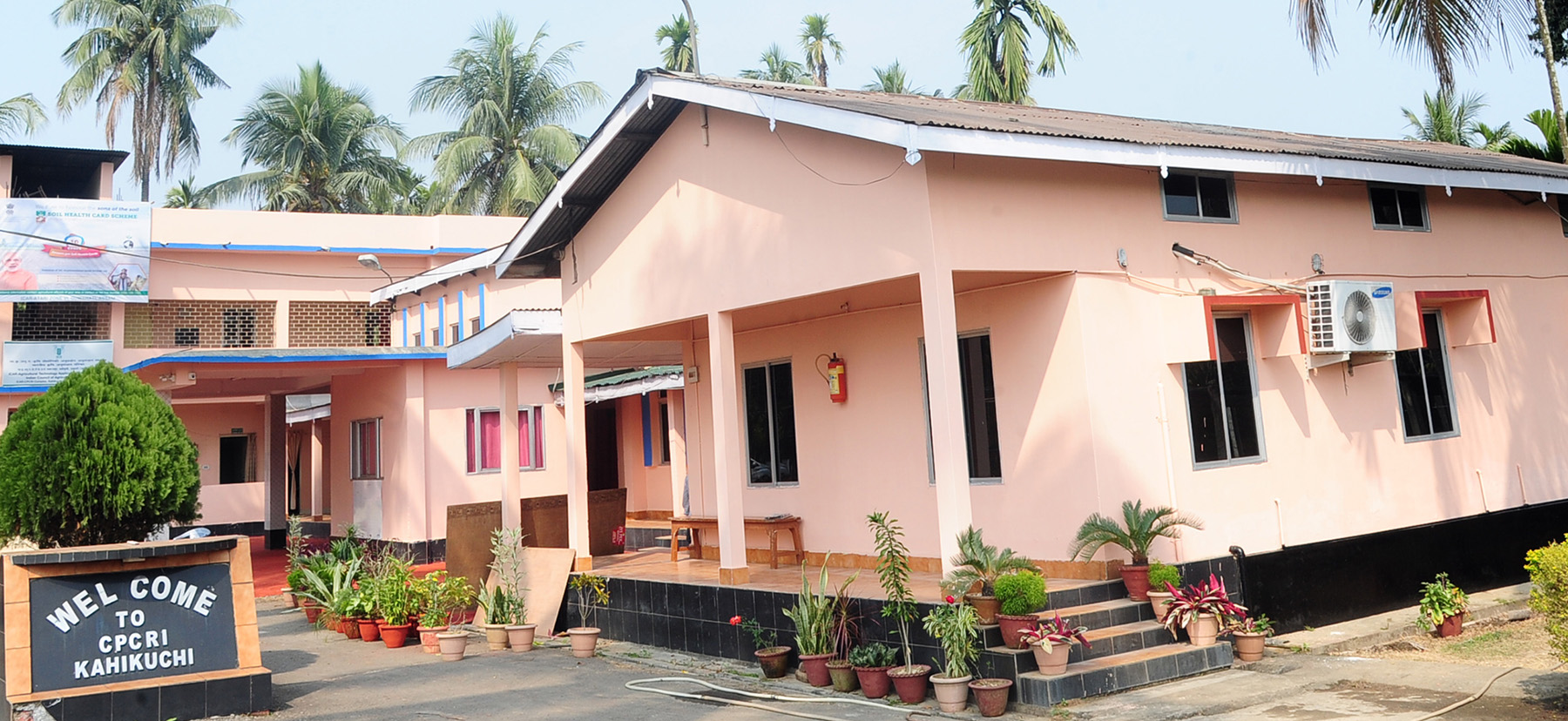


The Central Plantation Crops Research Institute, Research Centre, Kahikuchi came into force in 1959 as Regional Arecanut Research Station under Central Arecanut Research Station (CARS). Later, the centre was amalgamated with the Central Plantation Crops Research Institute (Indian Council of Agricultural Research) in 1970 as one of the Research Centres with the headquarters at Kasaragod. Since the inception, the centre has carried out location-specific, purpose-specific, need-based research on major plantation and spice crops for the development of farming community of this particular region. As it is the only centre of its kind in entire North East region that includes seven states of commercial significance, the center has immense responsibilities and disposed those with due credits.
The centre is located at Kahikuchi bordering to NH 37 near Lokpriya Gopinath Bordoloi International Airport in the Kamrup district. The nearest Railway station, Guwahati, is about 22 km away from this research centre. It lies at a height of 50 m above MSL and on 200 18’ N latitude and 910 78’ E longitude.
The area receives an average annual rainfall of 3000 mm, 90 per cent of which is received during South-West monsoon. The mean maximum temperature varies from 150 to 340C and the mean minimum temperature ranges between 60 and220C.
The soil of the site is predominantly clayey loam with a pH range of 4.5-6.0; medium nitrogen, low to medium phosphorus and low to medium potash content and low boron content.
Total area 15.76 ha